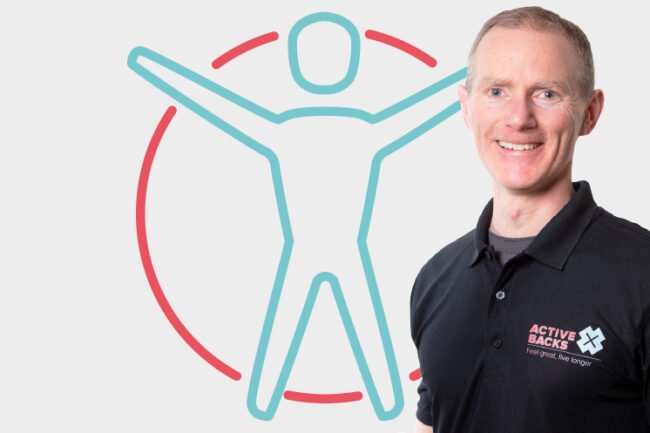Why does lower back pain occur?
Why does lower back pain occur?
Today’s episode is entitled “Why does lower back pain occur?” and it covers:
- Myths and misunderstandings about lower back pain
- Pathology
- Disc problems
- Non-specific lower back pain

Myths and misunderstandings about lower back pain
A bone being twisted out of place, pelvic misalignment or one leg shorter than the other may be a small part of your problem, but those are myths and misunderstandings. A lot of people with a twist to one side or a pelvic misalignment don’t have any pain, or at least it’s not related to that in any predictable fashion. It’s a result of your pain, not the cause of it. So why does pain occur? It’s a warning system, there to tell you that you have a problem, to stop, investigate, and do something about it. We can categorize this type of pain into three groups:
Pathology
The first and least common group. Pathology means it could be a disease process. It’s less than half percent of the cases. You could have an infection, you could have cancer, a cardiovascular problem, a metabolic problem, an inflammatory and auto immune disorder, and so on. There are all sorts of pathologies that can cause lower back pain, but are the least likely explanation. Pathology is the least likely by a big margin.
Disc problems
You may have heard of an intervertebral disc or a slipped disc. That last term suggests discs can slip in and out of place, but it doesn’t work that way. Other terms are prolapsed disc herniated, disc bulge. It accounts for about five to 8% of lower back pains.
Non-specific lower back pain
By far the biggest group. It seems like a really unhelpful category. It’s a medical term, not an osteopathic term. It means you don’t have a pathology. You haven’t got anything we can identify on an MRI or an x-ray. It’s probably not a disc problem, so we’ll put you in this cathegory. There’s something very specific about it, and it’s very difficult to diagnose it, becuse this type is multifactorial. It’s a functional assessment, an assessment of what you are doing, what makes it worse and what makes it better. At the end of the day, particularly in this group, most people can get better themselves, without treatment, if they know what to do, do the right thing and avoid the wrong stuff.


